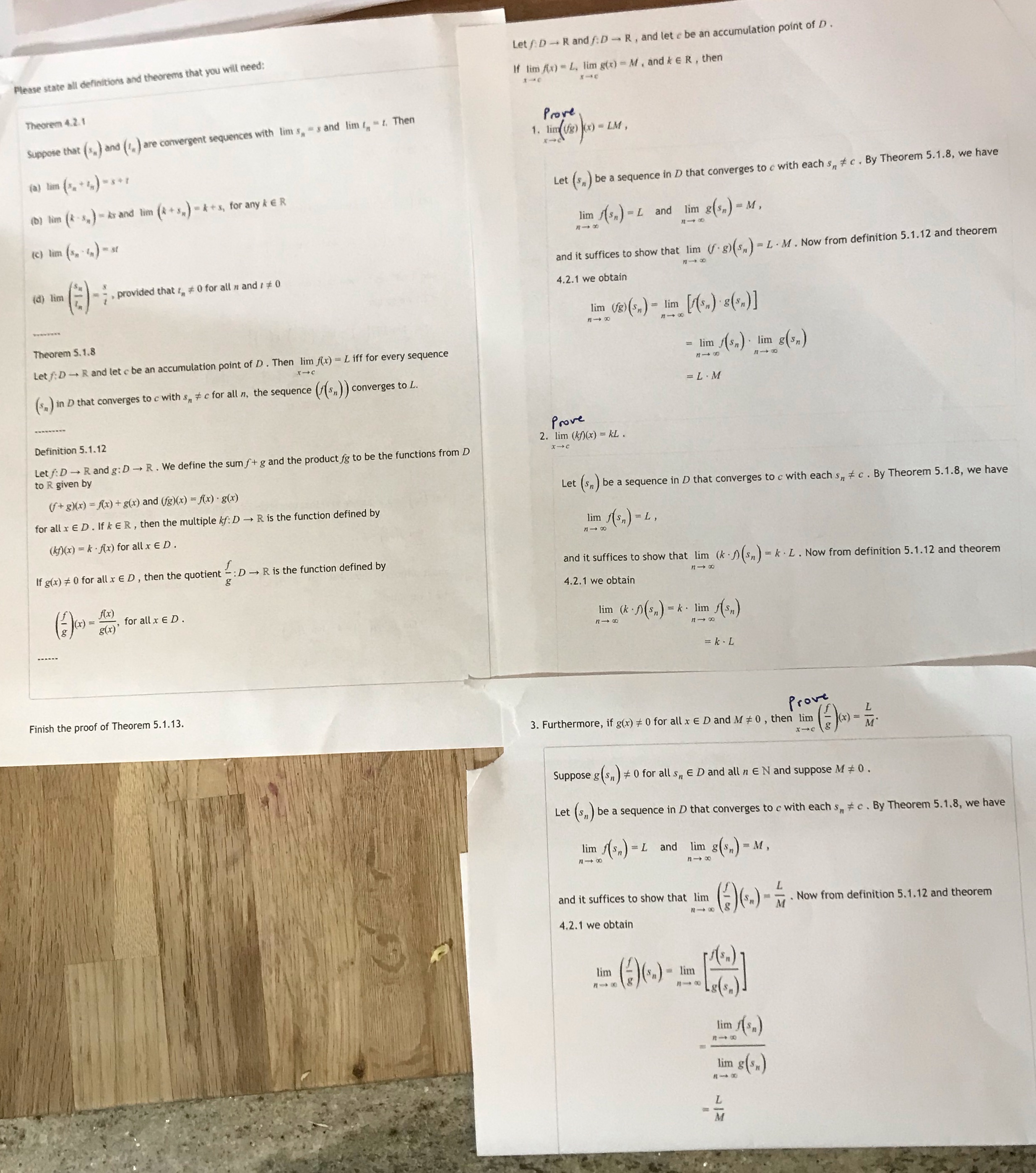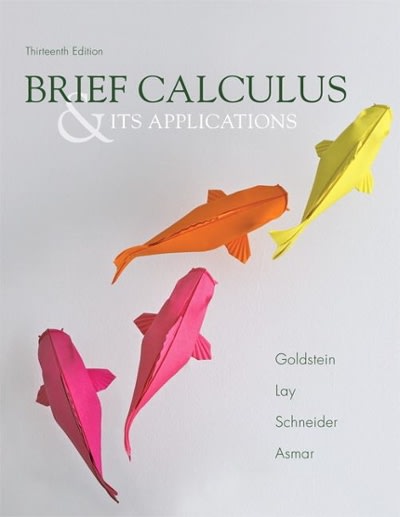Could someone please check my work
Let /: D - R and f: D - R , and let c be an accumulation point of D . Please state all definitions and theorems that you will need: If lim fux) = L, lim g(x) = M . and k E R , then Theorem 4.2.1 Suppose that (s.) and (1, ) are convergent sequences with lim's, - s and lim , = . Then Prove 1. lim(Vg) (x) - LM , Let ( ) be a sequence in D that converges to c with each s,, # c . By Theorem 5.1.8, we have (0) lim ( 4 - s, ) - ks and lim (4 + s, ) - 4+s, for any K ER (c) lim (5, " () - st lim /(sn ) = [ and lim 8(5) = M , and it suffices to show that lim (f . g)(s,, ) = L . M . Now from definition 5.1.12 and theorem (d) lim ( - , provided that , # 0 for all n and : # 0 4.2.1 we obtain lim (8) (s, ) - lim [(s,) 8(s,) ] Theorem 5. 1.8 Let f: D - R and let c be an accumulation point of D . Then lim f(x) = L iff for every sequence lim (sn) lim 8(57 ) (sm ) in D that converges to c with s,, # c for all n, the sequence ((s, ) ) converges to L. = L . M Definition 5.1.12 Prove 2. lim (k/)(x) = KL . Let f: D - R and g: D - R . We define the sum f + g and the product fg to be the functions from D to R given by (f+ 8)(x) = (x) + g(x) and (fg)(x) = f(x) . g(x) Let (Sn ) be a sequence in D that converges to c with each s,, # c . By Theorem 5.1.8, we have for all x E D . If & E R , then the multiple kf: D - R is the function defined by ( kf) (x) = k . f(x) for all x ED . lim f( s, ) = L , If g(x) # 0 for all x E D , then the quotient - : D - R is the function defined by 4.2.1 we obtain 1 - 00 and it suffices to show that lim (k . D) (S,, ) = k . L . Now from definition 5.1.12 and theorem 3(x )' for all x ED . lim (k . D (s, ) = k . lim f(s, ) 1 - + 00 = k . L Finish the proof of Theorem 5.1.13. Prove 3. Furthermore, if g(x) # 0 for all x E D and M # 0 , then lim ( )(x) = M Suppose g (Sn ) # 0 for all s,, E D and all n E N and suppose M # 0 . Let (s, ) be a sequence in D that converges to c with each s,, # c . By Theorem 5.1.8, we have 1 - + 00 lim (sn ) = L and lim g(5, ) = M, and it suffices to show that lim ( ) (s..) - M - M . Now from definition 5.1.12 and theorem 4.2.1 we obtain lim ()(s.) - 1im 1 0 3 (s ) lim f(s. lim g ($ , )







